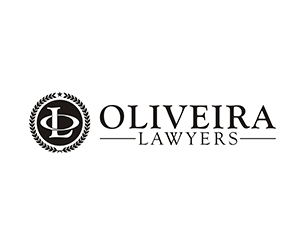Personal Injury From Defective Products
It’s not uncommon for an individual to experience harm from the use of a product that they would otherwise trust. There are billions paid out annually for product liability damages in the United States alone. There are some things to be understood about product liability to get the best outcome if you’ve been affected.
Contact Us Now
[email protected]
212-300-7174
Schedule a Free Consultation!
The Four Types of Product Liability
There are several ways the defendant could be held liable for defective or harmful products. The defendant could have a combination of the things they are held responsible for:
A Failure to Warn Liability
There could be issues that a manufacturer, supplier, distributor, or retailer could know about the product, and they need to disclose that to consumers. This is when you typically hear about items being recalled by corporations stating what’s wrong with the product. A car dealership could notice that a certain car model has a faulty airbag. Therefore, they issue a recall and have those car owners get a repair that’s free of charge. If someone is hurt behind the use of a product that they failed to warn the public about, they will be held responsible for damages.
Design Defect Liability
A simple way to explain this type of product liability would be an intentional design of a product that is proven to potentially harm those who use it. A good example of a design defect would be a birth control IUD. It’s intentionally designed the way it is for contraception but has been proven to cause pain from the IUD dislocating inside the body.
Manufactured Defect Liability
This type of product liability comes into play when products are unintentionally defective. Somewhere in the manufacturing process, something went wrong with the parts of the products being put together. An example would be a pre-assembled bike with a defect that caused an injury.
Food Poisoning or Foodborne Illness
We hear about food product lawsuits all the time due to them making consumers sick by containing bacteria. You’ll hear about recalls on food products such as produce, dairy, and meat products.
Plaintiffs in Product Liability Cases
Plaintiffs
For those wondering if they can make a solid claim, understand these things about a plaintiff:
- The plaintiff does not have to be the buyer
- The plaintiff does not have to be the one who used the product
If you used a product that a person gave you and suffered an injury, then you still have a valid claim. If you were injured by a defective product someone else was using, your claim is still valid.
What matters when it comes to the plaintiff’s claim is that:
- A loss was suffered
- The product is harmful and defective
- The product itself is proven to be the cause of injury
- There was no misuse of the product
Defendants in Product Liability Cases
When it comes to product liability cases, anyone in the chain of distribution can be held liable. This ranges from suppliers all the way to the retailers. Even in it a manufacturing defect case, the manufacturer could be at fault but also the retailer for selling the product.
A plaintiff’s best option is to locate as many defendants as possible in the chain of distribution. There could be multiple suppliers and manufacturers that were involved in the creation of the product.
The defendants responsible can be identified as corporations as well. And if the corporation is foreign but the injury took place in the US, the company can still be liable.
Their Common Defenses
Be mindful of the defenses they will attempt to claim. In certain cases, these defenses will completely bar recovery.
Plaintiff Didn’t Properly Identify the Correct Defendant
Sometimes mistakes are made in identifying the company responsible. The company can prove no wrongdoing or affiliation to the case.
The Product Was Altered By the Plaintiff
Depending on the product, the plaintiff might change the product intentionally to their preferences. This change could cause the product to become defective, therefore it is the fault of the plaintiff.
Plaintiff Knew The Product Was Defective
This may be a bit more difficult for the defendant to prove, but it has worked in favor of them before. If a plaintiff assumes risks of a product, then they can be held at fault for their own injury.
Contact Us Now
[email protected]
212-300-7174
Schedule a Free Consultation!
Compensation
Product liability cases can have high payouts that are seven figures. However, different states may have damage caps on how much can be paid out in these lawsuits. A majority of states including DC do not have them in place.
Defendants usually have a joint yet separate obligation to the payout for damages. Meaning amongst themselves they will determine the amount the portions of the payout they are responsible for. However, in the event a defendant is unable to pay, the remaining defendants will be liable.
Your lawyer will seek damages for medical fees, reimbursements, loss of any income, emotional suffering, and more. Lawyers tend to go after the wealthiest defendants in an attempt to get the plaintiff a high payout.
If you have been affected by a defective or harmful product, discuss your claim with Oliveira Law today.


